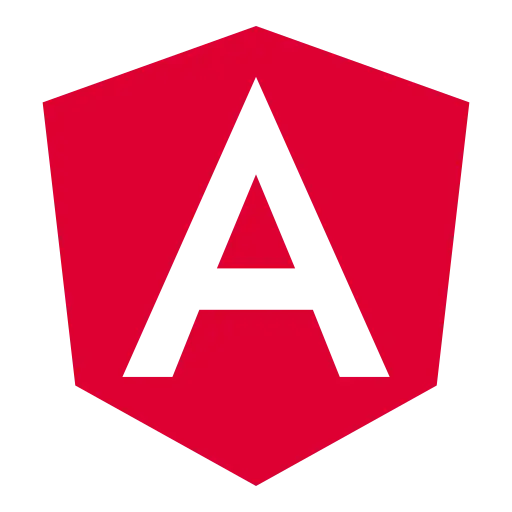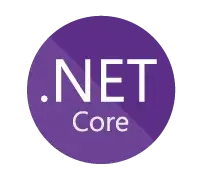Scalable applications with our Node.js development services
Over the last decade, our Node.js development expertise has allowed us to complete over 100 Node.js projects, delivering a comprehensive range of services: rapid API development, real-time applications, and enterprise-grade app scaling on AWS and Azure. Engage our skilled Node.js developers to build high-performance, scalable, and resilient applications tailored to your needs.
CASE STUDY
Tutorac Academy is a cutting-edge Learning Management platform, where learning meets innovation!

How Node Js services can benefit your business?
- Event-driven architecture for real-time applications
- High-Performance and Scalable Applications with Node.js
- Microservices And API Development
- Efficient data handling and streams
- Full-Stack JavaScript Development
- Robust Package Ecosystem with npm
- Security and Reliability
- Future proof and versatile
- Node.js is an open source platform that uses an event driven, non-blocking I/O model to manage multiple concurrent connections in an efficient manner. It is well suited for those applications requiring high performance real-time processing, such as live chat systems, gaming servers and collaborative tools where low latency and quick updates are necessary. The libuv library utilized in Node.js allows it to handle asynchronous I/O operations effectively thus maintaining smoothness during the handling of real time events devoid of interrupting the event loop.
- Node.js is an event-driven JavaScript engine that compiles JavaScript into machine code for maximum efficiency. The asynchronous single-threaded event loop of node.js handles multiple requests therefore it is best suited for high traffic applications. As a clustering solution, several copies of an app can function in various CPU cores making the load balancing and scalability better.
- Node.js is strong in creating microservices because of its modular architecture, and it allows each service to be independently scalable and deployable. Additionally, we utilize Docker for container management and orchestration with Kubernetes to manage them efficiently and also scale them up when necessary. The fast startup times and lightness make Node.js suitable in developing as well as deploying of RESTful APIs or GraphQL endpoints with high speed performance or data handling flexibility respectively.
- Node.js’s streaming API allows quick management of large amounts of data through processing data in parts rather than loading it all in memory. This functionality is critical for applications that manage big file uploads, video streaming or real-time data processing. In our work, we utilize the different stream modules of Node.js—Readable, Writable, Duplex and Transform—to create data pipelines and enhance throughput for smooth performance.
- Node.js enables the usage of JavaScript in every development stage, from frontend to backend. It creates an overall standard that makes it easy for anyone who knows how to program to work on either side of development without worrying about which language he should use in which case. The server-side applications are built using frameworks such as Express.js and NestJS that are both scalable and maintainable. Furthermore, tools like Babel and Webpack are utilized to guarantee a modern JavaScript compatibility as well as simplify building processes.
- npm (Node Package Manager) is a key player in Node.js’s robust package ecosystem that encompasses more than 1.6 million packages providing out of the box solutions for different kinds of functionalities like authentication (Passport.js), data validation (Joi) and real time communication (Socket.io) among others. It helps us manage dependencies and install them in an efficient way so that we can develop faster and follow the best practices.
- Node.js comes pre-equipped with security capabilities, like HTTPS support and HTTPS security headers. Furthermore, we practice due diligence to prevent conventional weaknesses through such ways as input validation, data sanitization and JWT as well as OAuth for secure token management. In addition, we utilize Node.js’s internal modules together with Helmet and Rate-Limit Middleware in order to bolster application security even more.
- Node.js is an actively developed and well-supported programming language that is always kept up-to-date with progressing trends and technologies. Its ability to accommodate modern development practices such as serverless architectures (for instance, AWS Lambda or Azure Functions) and cloud-native aims at ensuring that applications remain scalable and easy to maintain in future. Node.js is also truly versatile as it inter-operates superbly with other technologies like GraphQL for data fetching efficiency and Redis for in-memory caching making it suitable for various app requirements.
DO YOU KNOW ?
According to BuiltWith Trends Node.js is a preferred runtime environment for building scalable server-side applications. In the United States alone, more than 7 million live websites use Node.js, making it the leading country in Node.js adoption. The UK follows with 1.8 million sites utilizing Node.js, and Germany has over 1.2 million sites!
Excellence: The standard for our client deliveries.
With over 30 awards and accolades, our achievements showcase our quality and commitment to client success.
Maximize your result with our highly trained Node JSexpertise


React + Node.js
We utilize React with Node.js energetic piles to create components full-stack responsive and highly scalable applications. The resulting seamless, real-time user experiences are achieved through front-end and back-end operations synchronization that promote efficient data flow and better application performance.


Angular + Node.js
By using the effectiveness of Angular and the performance of Node.js, we build revolutionary applications that are rich in functionality. Through the powerful front-end capabilities of Angular and Node.js sturdy backend operations, we provide user friendly, quick opening and highly responsive applications which meet current software construction guidelines.


Node.js + Express.js
We utilize Node.js with Express.js for lightweight, fast web applications. This combination facilitates quick development and deployment, as well as scalable and maintainable solutions with optimized routing and middleware.


Node.js + AWS Lambda
Node.js along with AWS Lambda has formed a unique serverless architecture which maintains high availability at lower operational costs. This combination is suitable for creating scalable and event driven applications that are able to adjust effectively to varying workload levels.


Node.js + Docker
Bringing together Node.js and Docker allows us to develop containerized apps that can be easily deployed, scaled, and maintained. As a result, it guarantees that the same environments are available during development, testing stages as well as production thus facilitating an easy or quick delivery of applications.


Node.js + Nest.js
We utilize Node.js with Nest.js to develop scalable, maintainable, and highly testable enterprise-level applications. Nest.js offers a structured, modular architecture with advanced features such as dependency injection and middleware management, which enhances both maintainability and testability.
Projects powered by our development team.
GetLitt!.


e-Book Reading App for Kids with Gamification
- Game
- India
Getlitt: Best online book reading app for kids. Let your child discover a magical world of imagination, knowledge and inspiration. At GetLitt! We make reading fun.
- ReactJS
- NodeJS
- SQL Server
- Redis

Tutorac Academy.
Online Learning Platform
- EdTech
- India
Tutorac Academy is a cutting-edge Learning Management platform, where learning meets innovation.
- ReactJS
- NodeJS
- SQL Server
- Redis

Userpromo.
Influencer marketing service finder platform.
- Marketplace
- US
A platform for brands and content creators to connect and collaborate.
- ReactJS
- NodeJS
- SQL Server
- Redis

End-to-End Node.js development: from initial concept to successful launch
Selecting the right foundational tools is crucial for the success of your Node.js application. At Techuz, we leverage our extensive expertise to ensure that your project has the ideal groundwork for building and scaling your application. As an experienced Web development company our deep understanding of Node.js allows us to make informed decisions about the The selection of a boilerplate and stack for development is a matter that weighs heavily on the performance, scalability and sustainability of any Node.js application. We are able to offer high-performance server-side solutions by choosing tools and frameworks that are best suited for the project.
Our expertise extends to popular boilerplates like Express.js (for fast, minimalist server-side development), NestJS (for modular enterprise applications with TypeScript support) and Hapi.js (for scalable, feature-rich APIs). In addition, we use serverless frameworks such as Serverless or Architect when deploying on cloud platforms like AWS Lambda which enhances scalability as well as reduces costs.
As supportive tools, we incorporate libraries like Sequelize or TypeORM for ORM-based database management while Socket.io is used to facilitate real-time communication. Our know-how also includes advanced tools such as PM2 for process management and clustering as well as Nginx for load balancing thus enhancing the resilience and performance of your Node.js application.
We are always at the front line in backend development with Node.js making it possible for us to come up with unique, tailor-made solutions that meet specific requirements right from the beginning stage till the final product.

With more than 55 Node.js experts in our team, we have enormous skills and practices that are tested. We have done around 150 Node.js projects for our global clients including the USA, the UK or Australia. Our steadfast commitment to Node.js development allows us to provide high-quality efficient applications tailored to your own needs. We take great pride in our cutting-edge solutions and pinpoint accuracy which makes us good value for money. Due to this thorough understanding of client’s software development needs, we are the best people when it comes to Node.js Development Services. Depending on us means transforming your ideas into personalized high performing apps ready for today’s competition.
Engagement models for our Node JS development services
Outsource development
Share your project idea with us, and we'll manage the entire development process for you. At Techuz, we simplify the journey from concept to completion. Here’s how it works:
Share your project requirements![Initial Consultation & Proposal]()
1. Initial Consultation & Proposal
Share your project idea, goals, timeline, and specific requirements with us. We will conduct a detailed analysis, assess the scope, and outline our approach. You will receive a comprehensive proposal with our strategy, timeline, and costs.
![Development & Quality Assurance]()
2. Development & Quality Assurance
We kick off the development process, providing regular updates and milestones. Our team conducts rigorous testing to ensure functionality, security, and reliability throughout the development phase.
![Delivery & Post-Launch Support]()
3. Delivery & Post-Launch Support
Upon completion, we deliver the project for your review and address any final adjustments. Post-launch, we offer ongoing support for enhancements or maintenance to ensure the continued success of your project.
The Node JS ecosystem we use in our projects.
Frameworks


Libraries


Server Management




Database




Techuz is one of the best development and IT firm in the world.
And here’s what our clients say about us
Key Node.js trends to watch for future-proofing your app
The landscape of web development is continually advancing, and Node.js is at the forefront of this evolution. By keeping up with key trends, you can ensure your Node.js applications remain performant, scalable, and competitive. As a leading Node.js development company, we're committed to leveraging the latest advancements to deliver future-proof solutions for our clients.
Frequently
Asked Questions

Without a doubt, Node.js stands as one of the best options for significant enterprise applications. The high performance and scalability provided by its non-blocking approach, together with the event-driven architecture, make it suitable for handling numerous simultaneous requests and large amounts of information. Its asynchronous processing that operates concurrently allows efficient real-time applications and microservices hence it is ideal for complicated environments characterized by heavy traffic. Furthermore, by making it possible to utilize Javascript on both server-side or client side development, it simplifies development as well as integration due to the extensive ecosystem of libraries and modules available.This means that Node.js is a versatile tool for creating and managing large-scale enterprise applications.

During development of Node.js applications, high levels of security are incorporated from start till end. We do this by following best practices such as encryption for data provision, preventing SQL injection; XSS through secure coding standards and conducting regular audits on security so as to mitigate any existing vulnerabilities. For instance, amongst other tools at our disposal we have a helmet that enhances HTTP header security besides jsonwebtoken which provide safe authentication while ensuring lesson dependencies are up-to-date thus shielding us against already existing vulnerabilities. In addition, advanced monitoring and logging solutions have been employed in addition to their proactive attack responses so that threats may be diminished over time thus making your Node.js application steadfast against ever-changing dangers.

To make them more functional and speed up the developing process here at Techuz we employ several well known Node.js libraries. Here are some of the top ones:
Mongoose: ODM (Object Data Modeling) library for MongoDB allowing you to handle schemas easily and do unrelated database dealings.
Socket.io: An open source implementation of Javascript which enables real time bidirectional communication between servers and clients allowing chat apps or live updates to be built.
Lodash: A set of utilities that provide functions for working with arrays, objects and other data types, making routines easier thus improving coding efficiency.
Joi: A schema validation library used to maintain data integrity by enforcing validation constraints for inputs in applications.
Passport: An authentication framework that merges so many ways of authenticating users, like OAuth and local authentication.
By combining these libraries with the core features of Node.js, we can create efficient scalable apps according to you.

As a Leading Node.js development company, we leverage several popular Node.js frameworks to enhance our development process and build robust applications. Key frameworks include:
Express.js: this is a flexible and minimalistic framework used to build web and mobile applications that has full routing capabilities, middleware and HTTP request handling features.
NestJS: this is a progressive framework with an extensible architecture that enables you to create server-side applications which are efficient, reliable and scalable. It is based on the TypeScript programming language and works well with multiple libraries and tools.
Koa.js: Koa was created by the team behind Express to be a smaller yet more expressive platform for web apps and APIs which improves control over middleware.
Hapi.js: it is a powerful and pliable platform for developing applications and services recognized due to its elaborate plug-in system, configuration choices, as well as its strong concentrations on security as well as performance.

As an AWS development company we use a number of AWS services in order to improve Node.js web applications. Among these are:
AWS Lambda: For serverless computing Ability to run code in reaction to an event and hence do not need to provision or manage servers.
Amazon API Gateway: To design, publish and manage APIs that work with Lambda functions.
Amazon RDS: for relationship manage database services offering great availability and scalability.
Amazon DynamoDB: Handles NoSQL type databases with high speed performance and scales up.
Amazon S3: Is a scalable object storage platform, which is good for storing or getting back information like media files or local backups.
Amazon CloudWatch - monitors application performance by setting up alarms for operational visibility.
AWS Elastic Beanstalk: For hassle-free deployments and scaling of Node.js applications without the need to think about what happens behind the scenes.

Indeed, our SaaS product development firm has been creating SaaS applications using Node.js for a long time now. In terms of technical architecture, we usually incorporate the following components in our SaaS applications:
Microservices Architecture: The use of microservices allows specific functionalities to be accomplished with codes that could easily be expanded or maintained using Node.js. Therefore, it would be easy to develop, deploy and expand each service independently.
API Gateway: An API gateway such as an Amazon API Gateway or Express.js serves as a control panel for handling API requests as well as directing them towards their respective microservices. This arrangement allows for direct and efficient communication between back-end services and client applications.
Database management: In the case of relational or NoSQL databases like Amazon RDS and MongoDB Atlas are used respectively. This guarantees reliable data storage and supports complex queries as well as transactions.
Auth & Auth: For secure user authentication and authorization purposes OAuth 2.0 along with JWT(JSON Web Tokens) are used so that users access only the resources allowed for them.
Real-time Communication: Socket.io or websockets enable real-time features such as live notifications; chat functionality; collaboration tools and so on
Serverless services: AWS Lambda is used to generate code to respond to events without managing the server, which helps reduce operational costs and improve scalability.
Load Balancing & Auto-Scaling: AWS Elastic Load Balancing and Auto Scaling ensure that applications can efficiently handle multiple loads, distribute traffic across multiple instances and scale resources based on demand
Surveying and Logging: We use Amazon CloudWatch and the ELK Stack (Elasticsearch, Logstash, Kibana) to monitor application performance, log errors, and provide insights into system health.
Deployment & CI/CD: AWS CodePipeline and Jenkins facilitate continuous integration and continuous deployment. It helps automate the processes of building, testing and deploying so as to simplify updates while at the same time optimizing the code.
This strategy ensures that our SaaS products are robust, scalable and able to handle today’s complex applications while providing seamless user experience.
Inquiries.
[email protected][email protected]Reach us at.




















